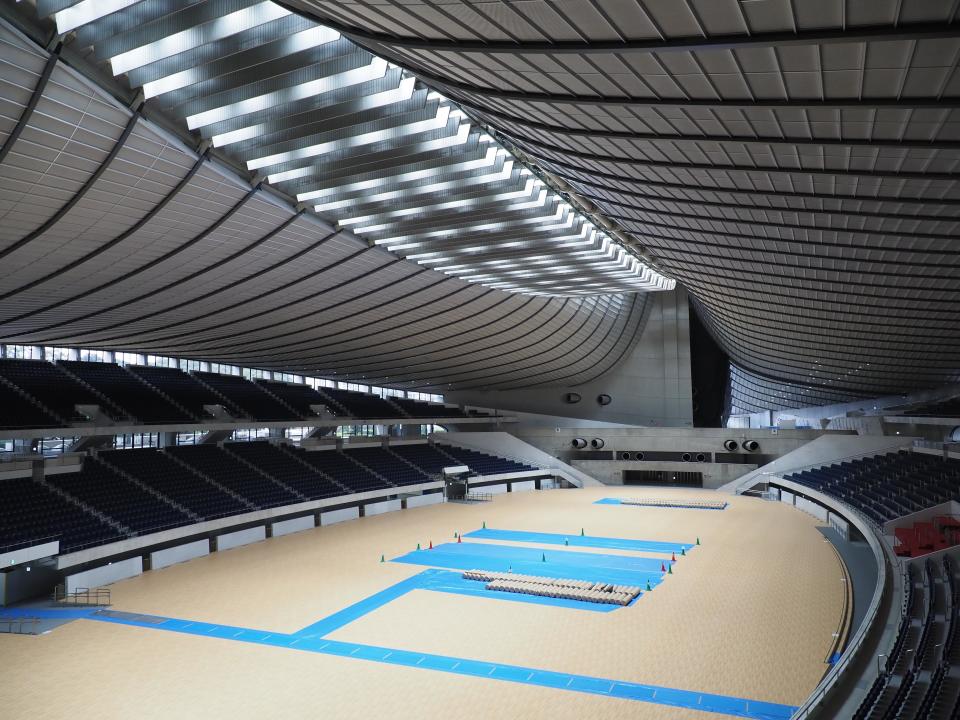Opinion: Against all odds, Japan welcomes world again for Olympic Games
As the world prepares for the most unusual Summer Olympics in history, it’s fitting that Tokyo is the place those Games will be held.
This is a city that knows Olympic uncertainty. It knows the heartbreak of forfeiting one Olympics and having another postponed. It knows all about re-introducing itself to the world simply by hosting the Games. And it knows the importance of the symbolism that comes when the largest peacetime gathering of the world finally takes place.
“They find a way,” said U.S. swimming legend Donna de Varona, who won her two Olympic gold medals as a 17-year-old at the 1964 Tokyo Games. “They always find a way.”
Tokyo was ready to host the 2020 Summer Olympics when the Games were suddenly postponed four months before they were due to begin as the COVID-19 pandemic swept across the globe.
There is such irony in that. Many Olympic cities scramble to get ready, or face major international concerns, most recently the Zika virus in Rio five years ago and the threat of North Korean interference at the 2018 Winter Olympics in South Korea.
But Tokyo was so ready, so prepared, so on top of its game — with the usual cost overruns and public criticism that accompany almost every Olympics. And then the pandemic hit, and Tokyo had to rely on its past to help cope with its future.
Once before, Tokyo lost its Olympic Games, and that time, it didn’t get them back. The city was awarded the 1940 Summer Olympics, but Japan’s invasion of China in 1937 resulted in the forfeiture of the Games a year later. Helsinki was chosen as the host, but it didn’t matter; the 1940 Olympics were never held due to the outbreak of World War II.
The 1964 Games, the first to be held in Asia, were Japan’s coming-out party to the world just 19 years after the end of World War II. Organizers of those Games met the symbolism of the moment by selecting a runner named Yoshinori Sakai to be their final torchbearer to light the cauldron at the opening ceremony.
TOKYO OLYMPICS: Events to be held without fans after new COVID-19 state of emergency declared
OLYMPICS NEWSLETTER: Sign up now to get Team USA news delivered to your inbox
The 19-year-old Sakai was selected for the honor for one very specific reason. He was born on Aug. 6, 1945, in Hiroshima, the day the atomic bomb was dropped on that city.
De Varona, who appeared on the cover of Life magazine as the 1964 Games began, remembers traveling around Japan two years before those Olympics on a promotional swimming tour.
"The country was being transformed,” she said. “They had a two-lane road from the airport and there was only one hotel that still had bullet holes in it. Then it all changed.”
The swimming competition, one of the hallmarks of the 1964 Olympics, was held in Yoyogi National Stadium, a soaring architectural testament to the new, glistening Tokyo cityscape that was later emulated by organizers of the 1972 Munich Olympics.
“I walked into the swimming venue for the first time and it took my breath away,” de Varona remembered. “There was nothing like it on earth. Just a state-of-the-art venue that represented everything about those Olympic Games.”

Yoyogi Stadium still exists and — metaphorically passing the torch from the 1964 Games to the 2021 Olympics — will host the team handball competition this summer.
But the symbolism of the Tokyo Games runs deeper than that. Donna’s father, David, a Red Cross field director in Europe during World War II, volunteered with various U.S. divisions as a paratrooper, including in the Battle of the Bulge. All told, she said, her father jumped into combat 11 times.
Move ahead nearly two decades to the 1964 Tokyo Olympics. De Varona’s parents came to watch her swim in the Games, but didn’t have the money to stay in a hotel, so they ended up in the home of a Japanese family.
“Can you imagine, this American paratrooper from World War II, staying with a Japanese family just 19 years after the end of the war?” de Varona said. “It’s almost unthinkable. But that’s the power of the Olympics. That would have never happened otherwise. Without the Olympics, how do we bring this world together?”
De Varona, a longtime women’s sports advocate, was recently named to the U.S. Olympic and Paralympic Committee’s board of directors. She would have gone to Tokyo for this summer’s Games were it not for the ban on international travel.
Ironically enough, the 2020 Tokyo Olympics were being called “The Recovery Games” in Japan, referring to the country’s tsunami and earthquake in March 2011 and the subsequent meltdown of three nuclear reactors.
Now, they still are about that, and so much more.
“This is Japan’s fourth Olympics, two Summer and two Winter (Sapporo in 1972 and Nagano in 1998),” de Varona said. “Since welcoming the world in 1964, this island nation has stepped up through daunting challenges to compete on the world stage in so many ways. Now here they are again, against all odds, welcoming the world’s athletes once again.”
Follow USA TODAY Sports columnist Christine Brennan on Twitter @cbrennansports
This article originally appeared on USA TODAY: Tokyo Olympics: Japan welcomes world again in 'The Recovery Games'
